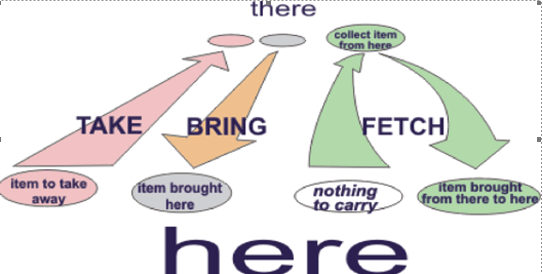Common mistakes Vietnamese people make when using some pairs of words in English
Posted date 21/12/2016
3.682 view

MSc. Do Hong Yen - Faculty of Foreign Languages
PROBLEM STATEMENT :
Making mistakes when using a language other than the mother tongue, specifically English, is inevitable for almost everyone, especially for countries that use English as a foreign language rather than a second language like in Vietnam.
English English is an international language, considered the easiest foreign language to learn among the foreign languages that Vietnamese people can access. However, learning English to be able to communicate and use it fluently is not easy. The huge vocabulary system combined with the lack of grammar makes many learners confused, so making mistakes is inevitable.
Making mistakes when using a language other than the mother tongue, specifically English, is inevitable for almost everyone, especially for countries that use English as a foreign language rather than a second language like in Vietnam.
English English is an international language, considered the easiest foreign language to learn among the foreign languages that Vietnamese people can access. However, learning English to be able to communicate and use it fluently is not easy. The huge vocabulary system combined with the lack of grammar makes many learners confused, so making mistakes is inevitable.
Identifying errors in an English sentence is one of the difficult skills when learning English. It requires learners to have good grammar knowledge, a wide vocabulary, understanding of idioms and special usage situations. Common errors in English can be vocabulary errors, grammar errors, pronunciation errors, etc., errors in speaking or errors in writing. With teaching experience, combined with understanding the current situation of English learning of Vietnamese people in general and Dai Nam University students in particular, in this article the author would like to mention some basic errors in the use of some pairs of words that Vietnamese people in general and Dai Nam University students in particular often make when speaking English.
Errors in using some pairs of words in English
1. COME and GO
This is a pair of verbs that most English learners make mistakes using.
For example: When going out with friends, you want to say “ I want to go home ”, in this case, how would you say it?
Most students say: “I want to come back home” - (WRONG) because they all think that “come back” in Vietnamese means to return/return.
However, in English, the use of the word COME depends on the current position of the speaker and the listener. If you say to go towards the speaker or listener, you use COME, but if you say to go in any other direction, you must use the word GO. In the above case, you (the speaker) and your friends (the listener) are in the same position and not in the direction you want to go, so you must say “I want to go home”.
If you are talking to someone who is at home, you can say: “I want to come back home”. (directed towards the listener)
Let's study another situation.
“Mary and Maggie are two close friends. Mary is on a business trip to Singapore and is now staying at a hotel, while Maggie is in Hanoi. They text each other:
Mary wrote: " It's great here. I wish you could COME visit me"
Mary uses the word COME because she wants Maggie to come to where she is (to come towards the speaker).
Maggie writes:
“I wish I could COME too. Are you GOING anywhere tomorrow?”
In this sentence Maggie uses the word COME because she wants to say: “I wish I could come too” (come to Mary- walk towards the listener).
But in the question: “Are you GOING anywhere tomorrow?”, he used the word GOING because it asked about the direction not to both people.
So, before you say where you want to go, or where you want to go, you have to think about your position and the position of the listener.
2. Bring / Take
The usage of these two verbs also depends on the speaker's position.
To distinguish the difference between bring and take , you should rely on the action being performed relative to the speaker's position.
Bring means to bring an object or person closer to the speaker.
Take , on the other hand, is to move an object or person away from the speaker.
Let's distinguish right from wrong through the following examples:
- Bring this package to the post office. Incorrect
-Take this package to the post office . Correct= Take this package to the post office!
(Use TAKE to move the package away from the speaker)
- I am still waiting for you. Don't forget to take my book. Incorrect
-I am still waiting for you. Don't forget to bring my book . Correct
= I'm still waiting for you. Don't forget to bring me the book!
(Use BRING to bring the book closer to the speaker)
Errors in using some pairs of words in English
1. COME and GO
This is a pair of verbs that most English learners make mistakes using.
For example: When going out with friends, you want to say “ I want to go home ”, in this case, how would you say it?
Most students say: “I want to come back home” - (WRONG) because they all think that “come back” in Vietnamese means to return/return.
However, in English, the use of the word COME depends on the current position of the speaker and the listener. If you say to go towards the speaker or listener, you use COME, but if you say to go in any other direction, you must use the word GO. In the above case, you (the speaker) and your friends (the listener) are in the same position and not in the direction you want to go, so you must say “I want to go home”.
If you are talking to someone who is at home, you can say: “I want to come back home”. (directed towards the listener)
Let's study another situation.
“Mary and Maggie are two close friends. Mary is on a business trip to Singapore and is now staying at a hotel, while Maggie is in Hanoi. They text each other:
Mary wrote: " It's great here. I wish you could COME visit me"
Mary uses the word COME because she wants Maggie to come to where she is (to come towards the speaker).
Maggie writes:
“I wish I could COME too. Are you GOING anywhere tomorrow?”
In this sentence Maggie uses the word COME because she wants to say: “I wish I could come too” (come to Mary- walk towards the listener).
But in the question: “Are you GOING anywhere tomorrow?”, he used the word GOING because it asked about the direction not to both people.
So, before you say where you want to go, or where you want to go, you have to think about your position and the position of the listener.
2. Bring / Take
The usage of these two verbs also depends on the speaker's position.
To distinguish the difference between bring and take , you should rely on the action being performed relative to the speaker's position.
Bring means to bring an object or person closer to the speaker.
Take , on the other hand, is to move an object or person away from the speaker.
Let's distinguish right from wrong through the following examples:
- Bring this package to the post office. Incorrect
-Take this package to the post office . Correct= Take this package to the post office!
(Use TAKE to move the package away from the speaker)
- I am still waiting for you. Don't forget to take my book. Incorrect
-I am still waiting for you. Don't forget to bring my book . Correct
= I'm still waiting for you. Don't forget to bring me the book!
(Use BRING to bring the book closer to the speaker)

3. FUN & FUNNY
Many English learners confuse these two words, they think that FUNNY means happy, funny, and so when they want to describe someone as happy, they say: “ She/he is funny ”. This is completely wrong because FUNNY never means that, this adjective is used to say something that makes us laugh, it means funny or humorous.

Example: The comedy I saw last night was really funny . I laughed and laughed.
- A. Mr Bean is so funny
- B . I think Tom and Jerry are funnier
However, you also have to be very careful when saying the sentence: “I feel funny ” – This sentence does not mean “I feel funny” but it means “I feel weird”.
For example: “You know, after taking these pills, I feel a little funny ”
So if you find something funny, you should say “ That was really funny ” , not “ I feel really funny ” or “ I am really funny ”.
- FUN (adjective): Used to describe things that make you excited, happy, and interested.
Example : Going to the park with friends is fun .
- The party at her house last night was fun
FUN can also be a noun, often with the verb HAVE.
For example: We had a lot of fun at the party last night.
4. LOSE & LOOSE
- These two words are often confused in written language. However, they have completely different meanings.
a- LOSE is a present tense verb, the past form and past participle are both LOST
LOSE has two meanings:
1a. Lose : lose something
For example: Try not to lose this key, it's the only one we have.
2a. Lose: lose, be defeated (usually in sports, matches.)
For example: I always lose when I play tennis against my sister. She 's too good.
b. LOOSE is an adjective meaning "loose, wide, not fitting ", the opposite of " tight ".
For example: Her T- shirt is too loose because she is so thin.
Above are some pairs of words that learners often confuse when using English. Hopefully, the distinction in how to use these phrases above will help you avoid mistakes when using them and gain more experience when learning English. Good luck!
- A. Mr Bean is so funny
- B . I think Tom and Jerry are funnier
However, you also have to be very careful when saying the sentence: “I feel funny ” – This sentence does not mean “I feel funny” but it means “I feel weird”.
For example: “You know, after taking these pills, I feel a little funny ”
So if you find something funny, you should say “ That was really funny ” , not “ I feel really funny ” or “ I am really funny ”.
- FUN (adjective): Used to describe things that make you excited, happy, and interested.
Example : Going to the park with friends is fun .
- The party at her house last night was fun
FUN can also be a noun, often with the verb HAVE.
For example: We had a lot of fun at the party last night.
4. LOSE & LOOSE
- These two words are often confused in written language. However, they have completely different meanings.
a- LOSE is a present tense verb, the past form and past participle are both LOST
LOSE has two meanings:
1a. Lose : lose something
For example: Try not to lose this key, it's the only one we have.
2a. Lose: lose, be defeated (usually in sports, matches.)
For example: I always lose when I play tennis against my sister. She 's too good.
b. LOOSE is an adjective meaning "loose, wide, not fitting ", the opposite of " tight ".
For example: Her T- shirt is too loose because she is so thin.
Above are some pairs of words that learners often confuse when using English. Hopefully, the distinction in how to use these phrases above will help you avoid mistakes when using them and gain more experience when learning English. Good luck!
Latest article
View all Posts
Related articles
See all related Articles










